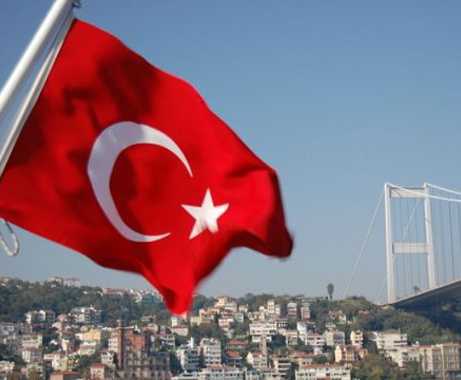How Turkey Can Make Peace With the Kurds
By ALIZA MARCUS
THE assassination of three Kurdish activists in Paris last week has raised fears that the true target was peace talks between Turkey and the rebel Kurdistan Workers’ Party, or the P.K.K. But the so-called peace process was already in shambles before the killings, which have not been solved.
Turkey’s prime minister, Recep Tayyip Erdogan, claims that he wants a deal to end nearly 30 years of war between the state and the P.K.K. rebels. But he has yet to take the decisive action needed for a credible peace process. Until he understands that the Kurdish problem in Turkey is about politics and identity, and not just about getting the guerrillas to withdraw from Turkey and give up their weapons, there will be no hope for peace.
The head of Turkish intelligence, Hakan Fidan, has recently been holding talks with the imprisoned P.K.K. leader, Abdullah Ocalan. Turkey’s intelligence services have had discussions with Mr. Ocalan since he was captured in February 1999, but to no avail.
The problem is that Mr. Ocalan may not be the right partner to negotiate with. He is held in extreme isolation on an island prison, with all communication vetted by his jailers. He received a television in his cell for the first time just a few days ago. Visits must be approved, and rarely are. This means that Mr. Ocalan has limited knowledge of developments in the Kurdish region of Turkey. And while he remains the head of the P.K.K., he has no practical control over the rebels’ day-to-day operations.
Even if he were in control, the highly authoritarian Mr. Ocalan is not necessarily the man to ensure democracy for Turkey’s Kurds. During the nearly two decades he was based in Syria, Mr. Ocalan consolidated power by killing or isolating challengers.
A viable peace deal must answer Kurdish demands for human rights in a manner that protects the views of all Kurds, not just those of Mr. Ocalan and the P.K.K. And the best way to do this is through the Kurdish Peace and Democracy Party, known as the B.D.P., which won seats in Turkey’s parliament in 2011 and can genuinely claim to represent Kurdish aspirations.
Mr. Erdogan needs to recognize that the way to peace is through politics. Instead of engaging solely with Mr. Ocalan, as if the P.K.K. rebellion were purely a security problem, he must craft a political process that addresses Kurds’ grievances about cultural rights and autonomy, giving the rebels a reason to lay down their weapons.
To end the conflict, which has killed more than 40,000 people and hampered Turkey’s ability to exert its clout in the Middle East, Turkey needs to do three things.
First, Mr. Erdogan must unequivocally commit to a negotiated process that includes compromises by both sides. While Turkey’s territorial integrity should not be up for debate, everything else should be. Mr. Erdogan has generally been dismissive of Kurdish grievances. In a recent interview, he said there was no need to instruct Kurdish students in their native tongue, because they can already study the language as an elective. Instead of belittling Kurds’ cultural demands, he should demonstrate good faith by pushing through stalled constitutional and legal reforms, including changes to constitutional provisions that restrict the use of the Kurdish language in schools, punish criticism of the Turkish state and define citizenship through the prism of Turkish identity.
Second, Mr. Erdogan needs to understand that disarming the P.K.K. won’t come at the beginning of the peace process, but at the end. He can, and should, ask for a cease-fire agreement, but it cannot be a one-sided call for Kurdish surrender. To silence the P.K.K.’s guns while talks are under way, Turkey will also have to suspend its military operations against rebels in the southeast and in northern Iraq.
Third, Turkey shouldn’t limit itself to negotiating with an imprisoned authoritarian figurehead; it should also negotiate with the B.D.P. Unlike the P.K.K., the B.D.P. has legal recognition. But it also has legitimacy among Kurds due to its close ties to the P.K.K.; its members share the P.K.K.’s political goals of Kurdish autonomy and recognize Mr. Ocalan as a leader of the Kurds. This is what makes the B.D.P. a serious negotiating partner; the party can be an effective conduit for P.K.K. demands and help devise a viable democratic reform package in Parliament.
more :
Aliza Marcus is the author of “Blood and Belief: The PKK and the Kurdish Fight for Independence.”
via How Turkey Can Make Peace With the Kurds – NYTimes.com.
